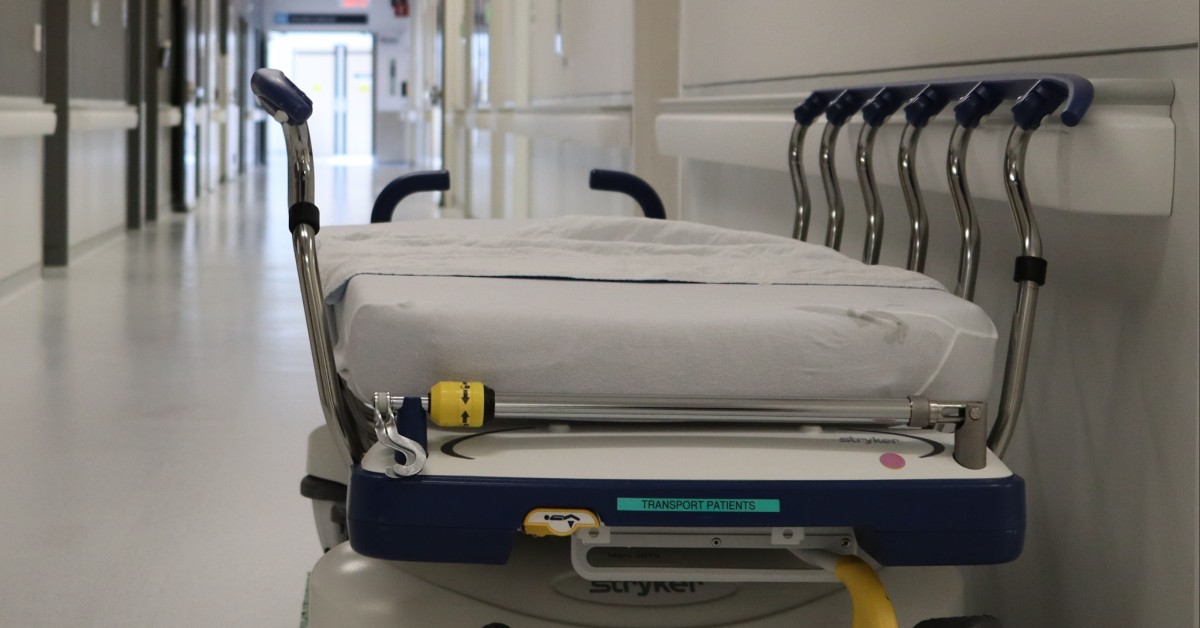
How to Become a Licensed Mental Health Social Worker
We explain the steps necessary to become a licensed mental [...]

If you’re considering getting a Master of Social Work (MSW) degree, you’ve probably already decided that a career in social work is right for you. You may already be working in the field after earning a Bachelor of Social Work (BSW), or you may be considering entering this profession.
Either way, earning a Master of Social Work is worth your consideration. An MSW will open many career options unavailable to those lacking an advanced degree, and it could increase your income substantially. Best of all, it will provide you with the training you need to be an effective social worker across a broad range of social work disciplines and functions.
Each state imposes its own unique requirements and regulations regarding the licensure of social workers. You don’t need to earn your MSW in Virginia to practice social work in the Old Dominion State. Still, if you plan to build your career there, it makes sense to earn your social work degree there as well. Virginia MSW programs prepare you to qualify for a Virginia social work license.
Interested in learning more about MSW programs in Virginia? In this article, we’ll discuss your options by addressing the following questions:
If you are serious about building a career in social work, you will likely find that not having a Master of Social Work degree severely limits your options. With an Associate of Social Work, a Bachelor of Social Work, or another sub-graduate degree, you will qualify for these entry-level social work positions:
Even as you accrue experience, however, you will likely run into impenetrable barriers as you try to ascend to management positions. You will never be able to do clinical work without an MSW.
With an MSW, your options will expand considerably. Among the careers open to MSWs:
Not only will an MSW qualify you for these jobs but it will also provide the skills and knowledge necessary to develop a deeper understanding of your life’s calling. You won’t just be a better-paid social worker because of your MSW; you’ll also be a better social worker. That’s what matters to most social workers, who fortunately don’t enter the profession to get rich (they won’t; the median MSW salary, according to Salary.com, is $64,550).
| University and Program Name | Learn More |
|
Virginia Commonwealth University:
Online Master of Social Work
|
It definitely does. Most important is that you pursue your MSW at a program accredited by the Council on Social Work Education (CSWE). Virginia will issue LCSW and LMSW licenses only to graduates of a CSWE-accredited program.
If you know you want to build your social work career in Virginia, there are advantages to pursuing your MSW in-state. Virginia programs are more likely to focus on those issues most prevalent across the state. More significantly, Virginia programs will prepare you for the state’s unique licensure process. Many programs will actually walk you through the requirements to ensure you receive your license at the time of graduation or soon after.
Whether it makes sense to get your MSW from a top-ranked program depends on your career goals. If you’re looking to parlay your MSW into a powerful job in the federal government—a not-uncommon ambition in Virginia, especially in the northern part of the state—a “name” degree will probably help. If you plan to join the front lines providing service to needy clients, on the other hand, you can probably do that with a degree from any CSWE-accredited institution.
On-campus learning is conducive to networking, team-building, and mentoring. Some people simply prefer to learn in a live classroom, and for them, an on-campus degree program makes sense.
That said, there are a lot of caveats about studying on-campus. Virginia is a big state, with only four accredited on-campus MSW programs. They are spread out across the state, but still, many people live pretty far from any of them. If you live in Charlottesville, for example, your closest options are Richmond (70 miles away) and Fairfax (100 miles away). Study on campus means traveling to and from campus, the hassle of parking, and all the expense and lost time those entail. On-campus study also limits your options to those schools that are within driving distance or are somewhere you are willing to relocate to.
Online learning expands your choices considerably, especially if you are willing to consider out-of-state options. Because so much online content is delivered asynchronously—i.e., not at a specific time—online study is much more flexible and, thus, more convenient for those juggling work, family, and other commitments. If you don’t care whether you spend a lot of time on campus, an online Master of Social Work may be the best option.
GMU offers its Master of Social Work on-campus in a full-time two-year program as well as part-time three-year and four-year programs. The school also offers the degree in an online format. The on-campus program allows students to concentrate in children, youth, and families (CYF) or in adults and healthy aging (AHA); students may also opt for a generalized (i.e., no specialization) MSW. The online program offers a general degree only.
The core curricula of the on-campus and online programs track closely, although online students must complete more required courses. Both curricula feature a focus on social justice and empowerment. Electives allow students to tailor their work toward social change or clinical practice. Students in both programs complete 1,050 hours of supervised field experience (i.e., a practicum). GMU’s location in Fairfax makes it by far the most convenient of Virginia’s four CSWE-accredited MSW programs to the Washington DC area.
The Ethelyn R. Strong School of Social Work offers its Master of Social Work program on-campus only. Program design includes “four coordinated semesters of study” with a clinical concentration. Content is “generally distributed throughout five sequences: Social Work Practice Methods, Human Behavior in the Social Environment, Social Welfare Policy, Research Methods, and Field Practicum. Students must complete 60 credit hours with a minimum GPA of 3.0 to graduate.
NSU awards a general MSW; full-time students can complete this degree in two years. Students who undertake the extended three-year program can specialize in military social work, school social work, or child welfare. All students must complete a 1,170-hour field education practicum. The school’s mission emphasizes “the values of social justice, social responsibility and respect for human rights, dignity and diversity.”
Radford University is located in the southwest corner of Virginia, about 50 miles southwest of Roanoke. The school describes its location as “in rural Appalachia,” adding “we offer coursework and internships focused on rural practice.” The program also offers “a selection of field placements in Roanoke, a midsize city,” so its field of study is by no means limited to rural issues. The school also offers live classes in Roanoke for the convenience of those who live closer to the city. Some components of RU’s part-time MSW are offered online.
All Radford MSW students must complete 1,010 hours of field placement experience. A final oral exam, including a poster presentation, demonstrates the program’s emphasis on communication and presentation skills. The school offers a concentration in community-based family practice (CBFP).
According to US News & World Report, the MSW program at Virginia Commonwealth University is the top-ranked in the state, tied for 25th-best in the nation. The school offers an on-campus program resulting in a generalist degree, a clinical social work practice specialization, or a social work administration, planning, and policy practice specialization. VCU also offers an online MSW with limited synchronous class sessions (three per course per semester). The online program offers a clinical area of specialization.
VCU’s location in the state capital ensures productive field placements for on-campus students as well as for local online students. The school boasts of “lasting connections with more than 500 community agencies throughout the region.” Full-time students should expect to commit 14 hours per week to their field placement during their first year and 21 hours per week during their second year. Online students should expect a similar commitment.
Questions or feedback? Email editor@noodle.com

We explain the steps necessary to become a licensed mental [...]

Domestic violence call centers in the US field 20,000 calls [...]

Social work leaders oversee organizations and work in advocacy roles [...]

Health care systems require social workers to assist individual patients [...]

The lack of affordable housing and sufficient mental health care [...]
Categorized as: Social Work, Social Work & Counseling & Psychology